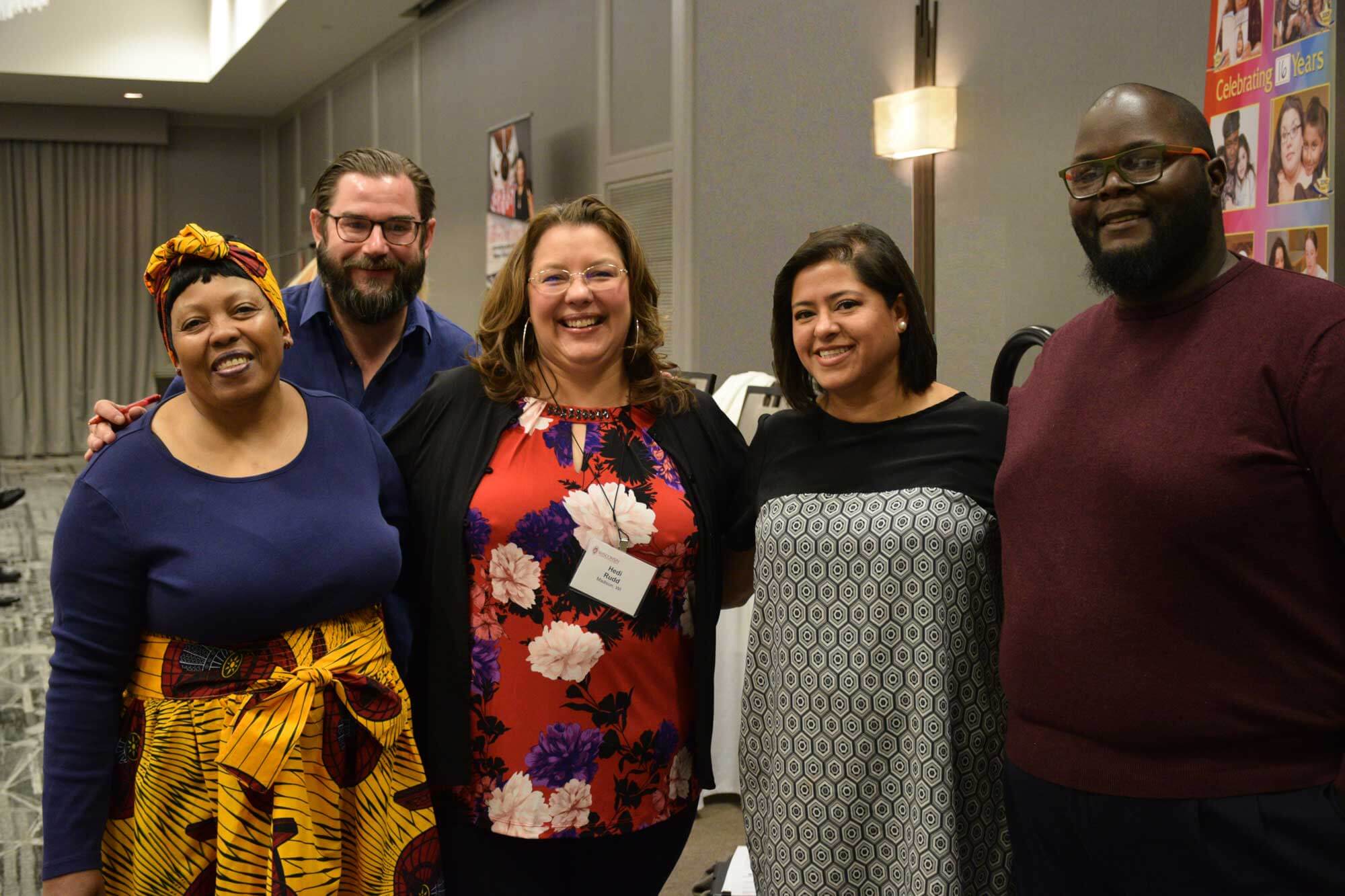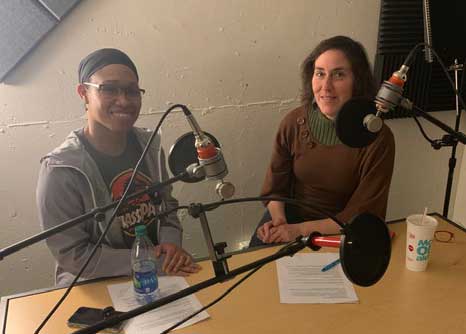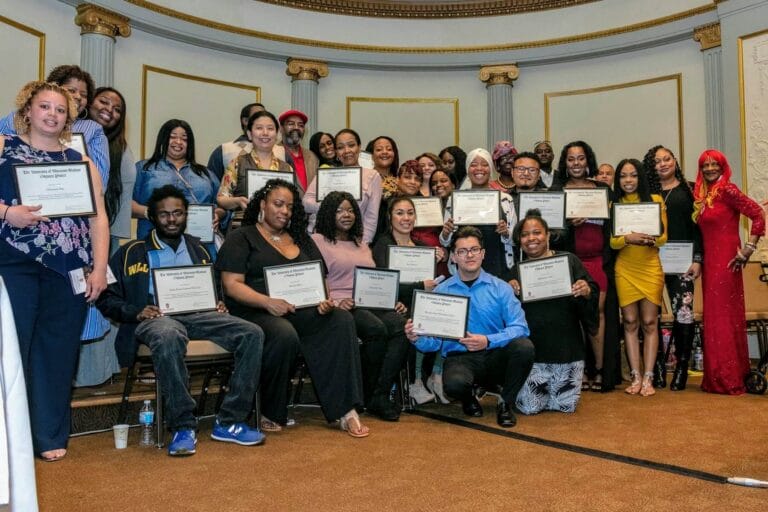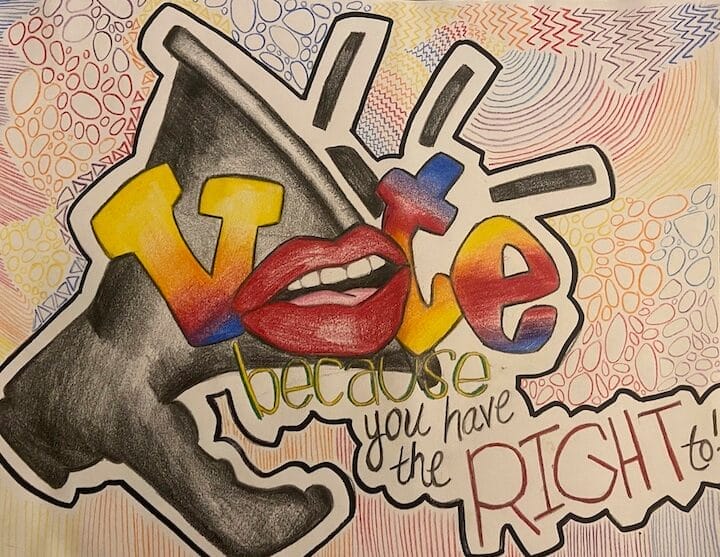
Odyssey Project featured in new podcast
The cross-currents of the stories from students in UW–Madison’s Odyssey Project reflect the beat of daily life, sometimes fraught with emotion, sometimes light, carrying meanings that entertain and inspire listeners.
Marisol Gonzalez tells an uplifting story about moving into an unwelcoming neighborhood and winning her neighbors over with parties, empanadas and persistence.
Lenora Rodin talks about her addiction, recovery, a broken marriage and her love for cookies.
Both are featured in a podcast called Inside Stories, co-hosted by Jen Rubin and Takeyla Benton, which deconstructs and delves deeper into great stories.
“There’s this great Ira Glass quote that goes, ‘Great stories happen to those who can tell them,’” Rubin says of the public radio storyteller. “A great story doesn’t have to be a heavy moment. It can be a light moment that represents a greater truth.”
Empowering adults
Rubin and Benton coach Odyssey students in storytelling as part of a writing class. And Rubin also produces The Moth StorySlam at the High Noon Saloon, where local storytellers come to share their tales before an audience.
The Odyssey Project has a track record of empowering adults near the poverty level to overcome adversity and achieve their dreams through higher education. It offers a two-semester humanities course that lets students rediscover the joy of learning while earning six credits from UW–Madison.
University faculty members introduce adults to great works of literature, philosophy, history, and art and help them improve skills in writing and critical thinking. Graduates of the program have journeyed from homelessness to UW–Madison degrees, from incarceration to meaningful work in the community.
Humor and humanity

Rodin tells the story of being 22 years clean and 30 years without a drink. Going to recovery meetings, she spied a good-looking man. “I stayed clean like 12 years, just following him to meetings,” she says in the podcast.
Eventually, he tried to entice her into smoking crack, and she divorced him. “I loved him, but I loved me more,” she says. “Love hurts, but love don’t hurt as much as if I ended up smoking dope with this man.”
Instead, she turned her attention towards food. “I ended up getting addicted to Chips Ahoy Thins. I’m talking about a love affair. If you had some, I’d buy them right now,” she says.
Rubin says she is impressed by the quality of the stories she hears from the students, and how they manage to weave humor and humanity into them.
“With Lenora, there’s something about her delivery. She’s so engaging. It’s the way she talks about addiction and choosing herself that’s so compelling,” Rubin says.
Parties build community
Gonzalez, whose Mexican family moved into an all-white neighborhood, tells the story of inviting all of her neighbors to a party. She cleaned and cooked, but only two older women showed up, brought plants and stayed 15 minutes.
She was undeterred.
“It was the best day in the new neighborhood for me,” Gonzalez says.
She continued holding parties, and attendance increased. Pretty soon, the neighbors started hosting parties, too. After living there a few years, Gonzalez and her family had to move out of the neighborhood.
“The neighbors put on a party for us. Some of them even cried, and asked, ‘Why are you guys leaving?’” she says.
Rubin says Gonzalez’s approach leaves the listener inspired.
“It was such a positive community building approach. She felt like she had to keep going and build from here,” Rubin says. “One of the things that Takeyla and I are excited about with this podcast is that there are so many great stories in every corner of Madison. We’re excited to share some of these Odyssey alumni stories with a wider audience.”
Read more about the Odyssey Project or email [email protected].


